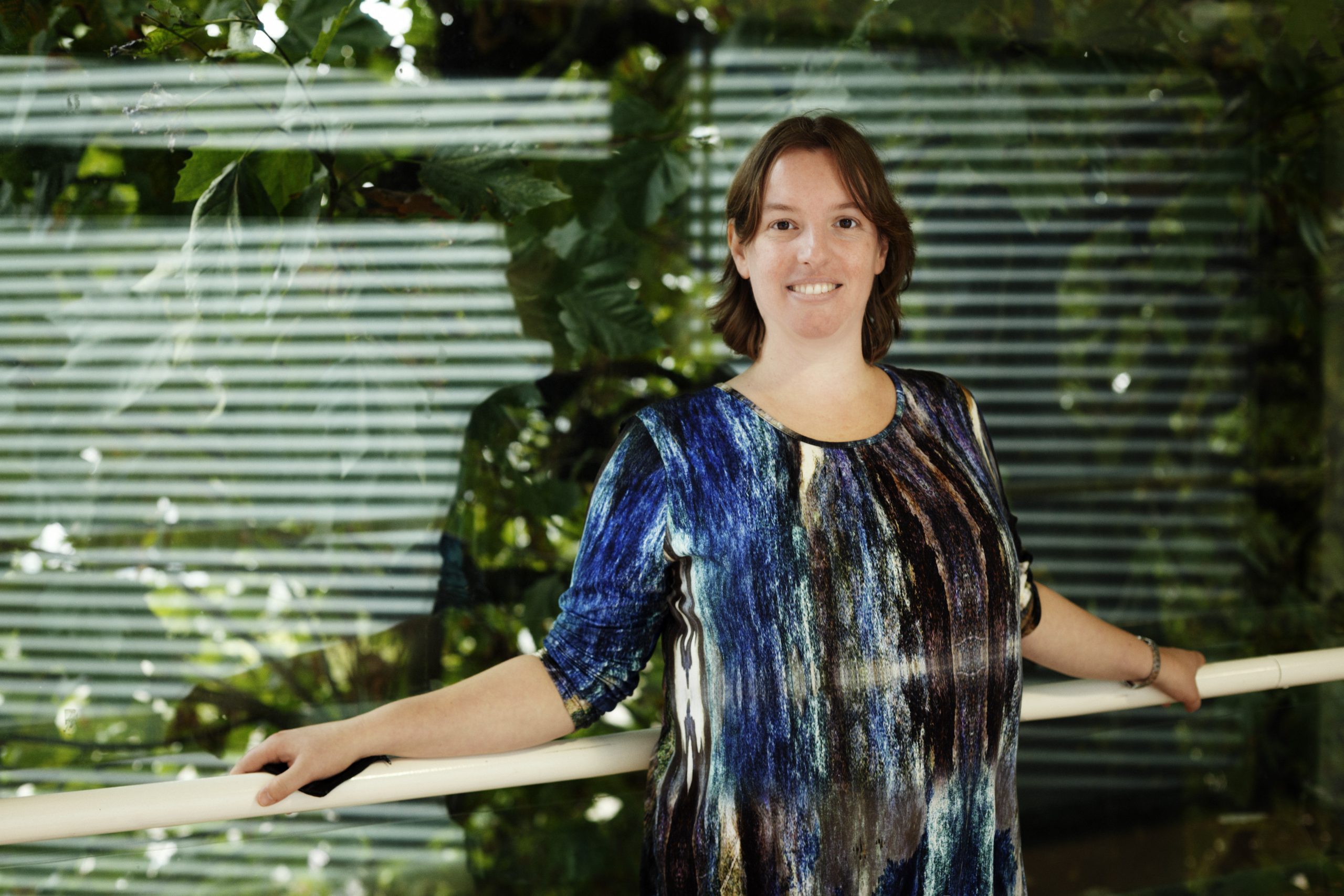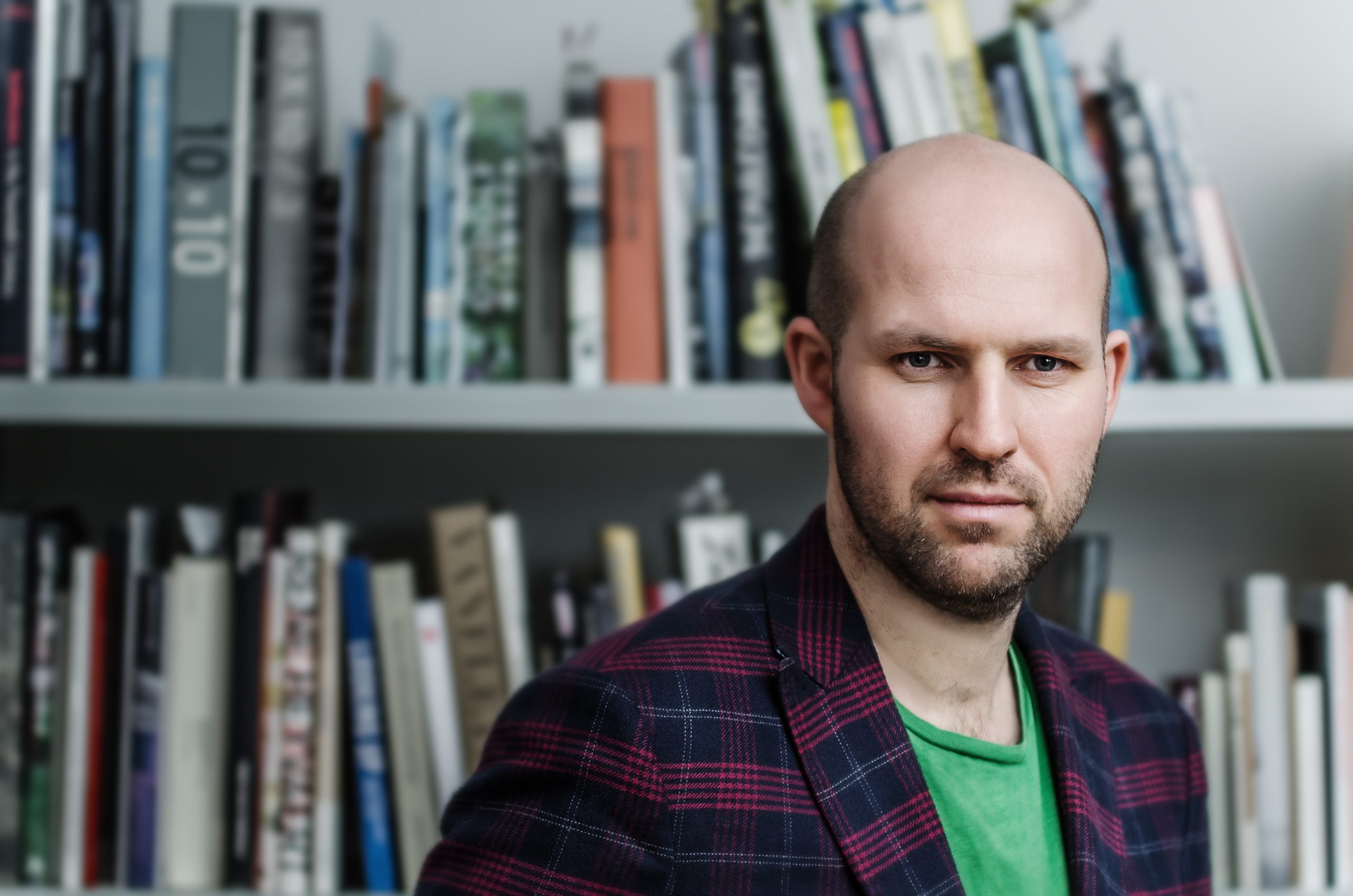The ‘Best Graduate of TU Delft’ title has been around since 2004. How are the first four best graduates doing now, and what’s their message to ‘ordinary’ students and alumni?
Best Graduate 2006-2007 Helma van den Berg-van Rijn: “It was the ‘best graduate’ title that spurred me on. It raised my profile and helped me to get funding.” (Foto: Sam Rentmeester)
 Maaike Kroon is Professor at the Petroleum Institute in Abu Dhabi. (Photo: Bob Bronshoff)
Maaike Kroon is Professor at the Petroleum Institute in Abu Dhabi. (Photo: Bob Bronshoff)Maaike Kroon: ‘My attitude to life is changing’
Chemical engineer Maaike Kroon was the very first ‘Best Graduate of TU Delft’. Her graduation research helped to accelerate a new production method for the chemical and pharmaceutical industry, an unprecedented breakthrough for a graduation project. Not only TU Delft was in awe of her; DSM was too. Kroon wanted to continue her research. Her then-Dean, Karel Luyben, who was later to become Rector Magnificus, came up with the funding for the first part of her research, but then it was up to Kroon.
She was awarded a PhD after just two years. She’d obviously gathered all the information she needed, but there was another, more pressing problem: no more funding for her appointment. She left for Barcelona and Stanford became a Professor of Separation Technology at TU Eindhoven at just 29 years of age. Less than five years later, Kroon was appointed Professor at the Petroleum Institute in Abu Dhabi, a position she’s still happy in. Why? “In the Netherlands, you spend 30% of your time writing research proposals. Here, I can get on with my research in dynamic, young surroundings, with a good salary, calm working environment and time for my family. And it’s just a six-hour flight from the Netherlands.”
Kroon now has time to contemplate life. “My attitude to life is changing. Other things have become more important: friends, family, new experiences. And we’ll definitely return to the Netherlands when the children are older. I still want to work in science, but not in the way I used to.”
 Gert Kragten acts as ‘a bridge between customers and engineers, and engineers and production’. (Photo: Sam Rentmeester)
Gert Kragten acts as ‘a bridge between customers and engineers, and engineers and production’. (Photo: Sam Rentmeester)Gert Kragten: ‘A good salary isn’t enough’
Gert Kragten graduated on the analysis of a hand prosthesis mechanism. It was not only of mechanical interest to him, but also socially relevant. He heard about the ‘Best Graduate of TU Delft’ title while in India, where he and his wife were doing voluntary work. “It was a surprise. It felt like a gift,” he remembers.
The prize helped him to put his doubts into perspective during his PhD research into robotic hands. “It inspired me to keep going whenever I started doubting myself. The idea that other people had seen and recognised my work was encouraging.”
Kragten was awarded a PhD in 2011. As his work had always been theoretical and solo, he was keen to do something practical. Lely in Maassluis, a company that builds milking robots (among other things), offered him both practical challenges and teamwork: organising, experimenting, arranging, visiting farms. “I experienced team spirit and honed my practical skills. But every now and then, I worried about not using my academic skills to the full.”
This brought Kragten to his current employer, fluid and motion control company Gevasol. Kragten acts as ‘a bridge between customers and engineers, and engineers and production’. “I try to avoid blinkers.”
But Kragten is also considering his future. He’d like to take Gevasol’s engineering department to Delft, and attract students, children and people who difficulty finding work. “The gap between theory and practice can be huge, while these two aspects can actually feed off one another. It’s hugely stimulating, even for me. A good salary isn’t enough.”
 Helma van Rijn’s current job at Muzus involves a project with the homeless. (Photo: Sam Rentmeester)
Helma van Rijn’s current job at Muzus involves a project with the homeless. (Photo: Sam Rentmeester)Helma van den Berg-van Rijn: ‘I love discovering new worlds’
Helma van Rijn knew that her supervisors were pleased with her, but she hadn’t expected to get a ten. For her graduation research, Van Rijn designed interactive toys to help children with autism develop their language skills. She is genuinely interested in target groups who are difficult to reach.
“I love discovering new worlds,” explains Van Rijn. She’s keen to use this trait to improve the care system. “My current job at Muzus involves a project with the homeless. I want to understand people better, find out what they need, how I can help them, design something useful. I do this by asking lots of questions and listening carefully.”
It was the same during the PhD research that followed her graduation. She wanted to learn from her dealings with people suffering from dementia and autism. She even initiated a product that people with dementia could activate with memories. She hadn’t been planning this PhD field as a student, explains Van Rijn. “It was the ‘best graduate’ title that spurred me on. It raised my profile and helped me to get funding.”
Van Rijn has always been prepared to go the extra mile. “I’m a perfectionist and I want to contribute,” she explains. She gained a first-year diploma in psychology alongside her degree in Industrial Design Engineering, did a research internship with IDE, brought products onto the market and still gives the odd guest lecture at TU Delft. Her tip for others? “Show people what you’re capable of and show some initiative.”
 Dawid Strebicki is founder and owner of a architect’s office in Polen. (Photo: Mateusz Bieniaszczyk)
Dawid Strebicki is founder and owner of a architect’s office in Polen. (Photo: Mateusz Bieniaszczyk)Dawid Strebicki: ‘You must show employers that you’re keen’
Dawid Strebicki didn’t plan to start his own architect’s office in Poland, the country he left at the age of ten. In 2011, he and his girlfriend (also Polish) were facing a dilemma: stay here or embark on a new adventure? “Her parents in Poland had a huge attic room. We set up office there, taking on projects in Belgium and Poland.”
In 2008, Strebicki was given a ten for his graduation project, a design for a secondary school in a deprived district in Amsterdam-North. He puts the mark into perspective: “Emotion is a big part of architecture. I worked hard. I’ve fond memories of our graduation group: we inspired one another, urged each other on.”
Strebicki graduated in the middle of a construction crisis. But two weeks later, he had a job in Rotterdam. It was good, but not his thing. “It didn’t get my juices flowing. I soon moved to the smaller Flemish office owned by my former supervisor, where I learned a lot. I found myself consulting with everyone at the same time; from politicians to bricklayers.”
It’s a competitive field, says Strebicki, designers have a lot of responsibility. It starts while you’re still training. “To my mind, the teaching methods pushed you in the direction of your own office. I don’t know whether this was intentional, or if it’s just my perception or if most of us look back on our degree programme like this.” But if there’s one thing Strebicki learned, it’s this: “You must show customers and employers that you’re keen, they must be able to trust you. On the other hand, you’re judged on what you achieve. This turned out to be more important than any diploma.”
Read also the interviews with Best Graduates Olaf van Campenhout (2016) and Jet Gispen (2017).
Each year the Delft University Fund awards the best graduates of each of the eight faculties of TU Delft. Out of these eight outstanding students The Best of TU Delft is chosen.
Do you have a question or comment about this article?
s.m.bonger@tudelft.nl

Comments are closed.